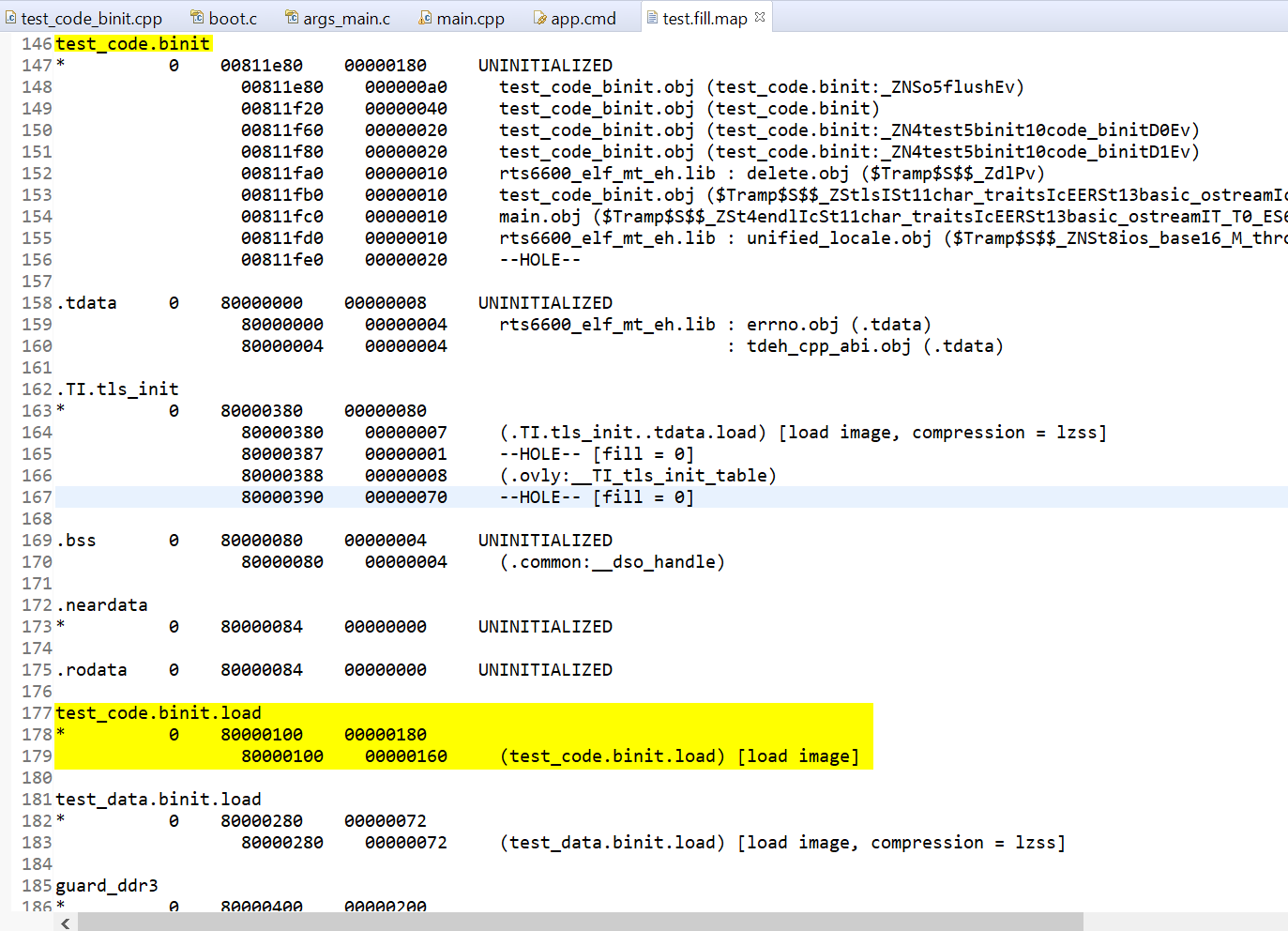Tool/software: Code Composer Studio
Dear TI Support Team,
related tools:CCS 8.1.0 and CCS 7.3.0, compiler 8.2.3, PDK 2.0.9
I am running in an issue, where I can not set SW and HW breakpoints in my C++ code at runtime. After a long way of efforts I found out, that if I am using BINIT based compression of code (.text segment), where the code will be extracted at boot time, the setting of breakpoints in CCS debugger does not work anymore.
I can understand the issue for software based breakpoints, because the code will be changed at boot time, but I am using HW-breakpoints only and this does not work as expected. It looks so that the CCS debugger is not able to find the related debug information of LZSS compressed code sections (RUN address is unequal LOAD address) in the *.out file.
Please would you fill a bug entry in the SDOWP to track this issue.
Thanks and kind regards
Sven


